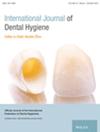Health-risk behaviours co-occur among adults with tooth loss
Abstract
Introduction
Health-risk behaviours tend to co-occur among the same sectors of the population. The aim of this study is to examine the association between an aggregate of multiple health-risk behaviours and tooth loss among American Adults.
Methods
We used data from the Behavioural Risk Factor Surveillance System (BRFSS) 2022, a nationally representative survey of non-institutionalized American. We included participants aged 18 years and older. An aggregate variable of health-risk behaviours which included smoking, heavy alcohol consumption, lack of physical activities, overweight/obesity, infrequent dental visits and infrequent medical check-up was created. Tooth loss was indicated by losing one tooth or more. Logistic Regression analysis was conducted to test the association between the aggregate of behaviours and tooth loss adjusting for income, education, ethnicity and health insurance.
Results
The analysis included 326,561 participants. The mean number of health-risk behaviours was 2.13 and 1.72 among participants with tooth loss and without tooth loss, respectively. The aggregate of health-risk behaviours was significantly associated with tooth loss with odds ratios 1.23 (95% CI, 1.21, 1.26) in a model adjusting for age, gender, education, income ethnicity and health insurance.
Conclusion
This study demonstrated that an aggregate of health-risk behaviours, with some not directly linked to oral health, is associated with tooth loss among American adults. The study highlights the importance of considering different risk factors when planning health promotion policies to tackle oral health.

 求助内容:
求助内容: 应助结果提醒方式:
应助结果提醒方式:


